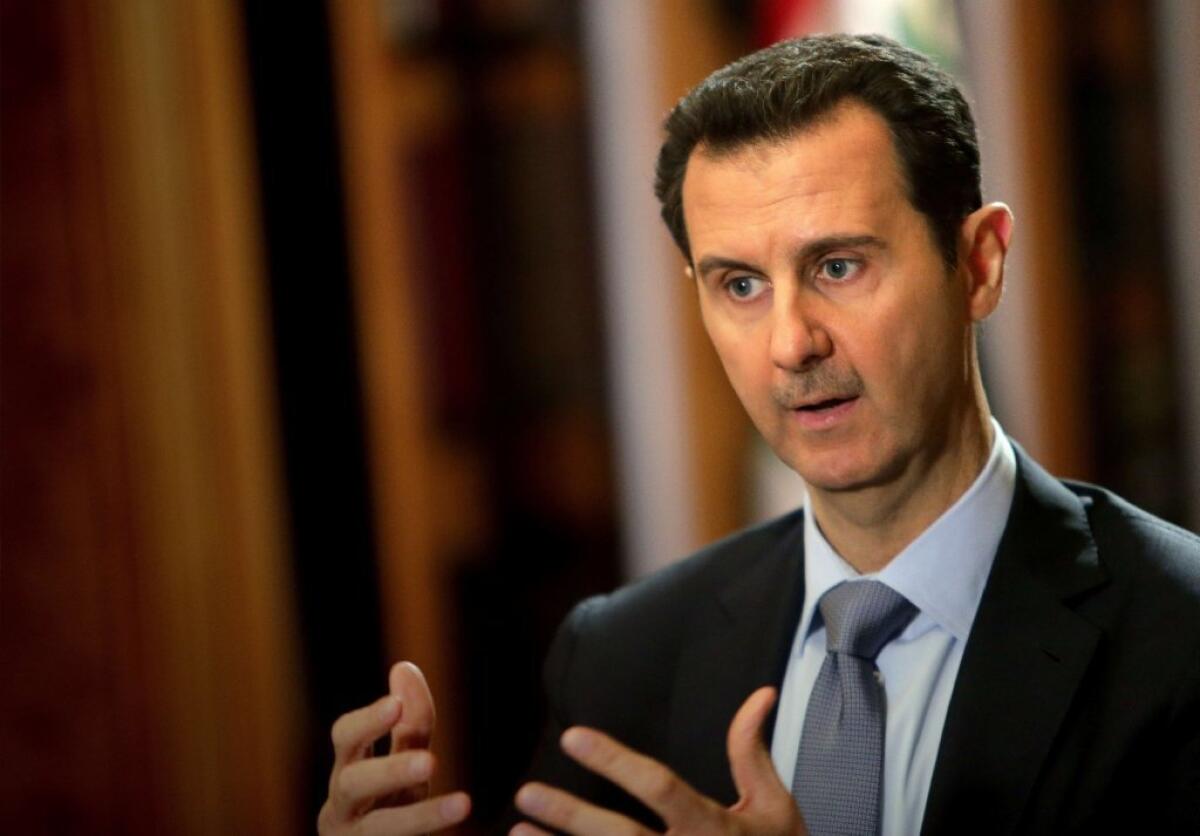Editorial: Should Assad face trial as a war criminal?

- Share via
Reports have circulated over the last several weeks that Syrian President Bashar Assad’s forces are gaining the upper hand in that nation’s ugly civil war — and are once again committing atrocities using internationally banned chemical weapons. This time, the allegation is that the regime is dropping chlorine gas bombs from helicopters over civilian targets.
If an investigation underway by the Organization for the Prohibition of Chemical Weapons confirms the latest allegation — leveled by France, among others — it will be time to bring Assad before the International Criminal Court to answer war crimes charges.
Why now? Why not a year ago, when Assad used chemical weapons, including deadly sarin gas? Because until recently there remained a chance — slim though it was — for a diplomatic solution to the Syrian crisis and for Assad’s negotiated exit. Knowing that a jail cell awaited him at The Hague if he left the country would have been a disincentive for Assad to leave voluntarily. But the closer Assad comes to prevailing in the war, the less need there is to keep that diplomatic exit open.
Members of the U.N. Security Council are reportedly drafting a letter to refer Assad’s actions to the ICC. One challenge will be to win the backing of the United States; to that end, the letter has apparently been written specifically to allay U.S. concerns that American troops or the Israeli government will somehow end up before the tribunal.
The second — and far greater — challenge will be to win Russian support. As one of the council’s five permanent members, Russia has a veto, and President Vladimir Putin has been in Assad’s corner from the start of the civil war. As his behavior in Ukraine demonstrates, Putin clearly doesn’t mind flouting international conventions. We hope he at least recognizes that the world must stand united against chemical weapons, and that Assad needs to be called to account.
There is narrow cause for optimism. It was Russian intervention (after the threat of U.S. military action) that led Assad to admit last fall that he had chemical weapons, and to accept their supervised removal from his country. That process has progressed more slowly than anticipated. Although the last shipment remains stalled, international monitors are hopeful that the stockpiles will be gone.
Chlorine, because of its pervasive use in industry, is not covered under the reporting requirements of the international Chemical Weapons Convention. But that convention, which Syria signed when it promised to give up chemical weapons, does ban using chlorine gas as a weapon. If the investigation finds the gas was used, Assad must be held accountable. The Security Council should put the war crimes referral to a vote and force Russia’s hand. If Russia vetoes it, then at least the world will be able to see who stands for humanity and who stands against it.
More to Read
A cure for the common opinion
Get thought-provoking perspectives with our weekly newsletter.
You may occasionally receive promotional content from the Los Angeles Times.










